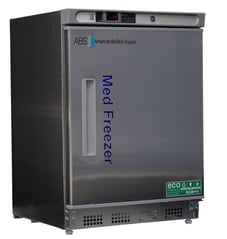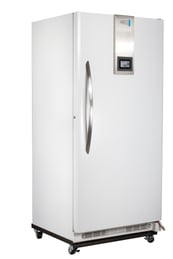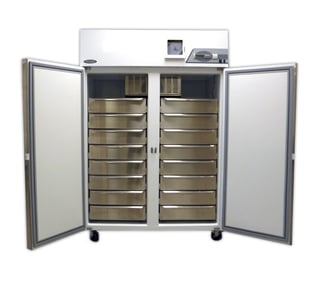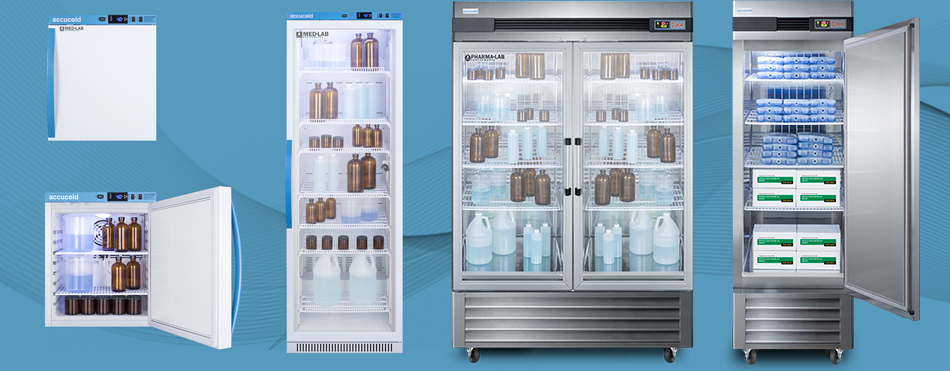
Medical-grade refrigerators and freezers are an essential component of any healthcare facility. They store medications required to keep patients healthy and they store lab specimens at precise temperatures to ensure accurate test results.
With so many options for refrigerators and freezers on the market, choosing the right one can seem like a daunting task. This guide will help narrow down the options to ensure you make the right investment.
1) Consider the Application
Just because a model is labeled as “medical-grade” does not mean that it will work for all medical applications. Applications in healthcare facilities include storage of lab specimens, vaccines, specialty medications, biological samples, and blood. Each of these applications has specific requirements and may need to meet guidelines set by various agencies. For example, a refrigerator storing vaccines should meet CDC Guidelines compared to a Blood Bank refrigerator that must meet FDA Approvals.
2) Know your Temperature Requirements
Temperature requirements can vary depending on what is being stored and how long it is being stored for. Medical-grade units utilize features such as microprocessor temperature controllers, forced draft circulation, and superior insulation to meet these stringent requirements.
Refrigerators and freezers can vary widely in temperature ranges and uniformity. Typical refrigerators range from 1 to 10° C with varying degrees of uniformity. Typical freezers usually maintain -20° C for short-term storage, but can be as low as -86° C in ultra-low models or down to -196° C for long-term cryogenic storage.
3) Pick the Right Size
If storing vaccines, the CDC Guidelines state to purchase a unit that is large enough to hold the year’s largest inventory. Regardless of the application, it is important to consider your future storage needs and ensure that you will have ample storage capacity at the times when it is most important. Overpacking a refrigerator can restrict airflow and cause uniformity issues.
Measuring the available space in your facility is just as important, especially when placing a unit under counter or in enclosed spaces. Many refrigerators and freezers require several inches of clearance on the sides and back for ventilation. The manufacturer’s instructions should always be followed for ventilation requirements to ensure optimal performance.
4) Protect your Valuable Contents
Refrigerators and freezers in healthcare facilities often hold expensive medications and irreplaceable samples. Models today have security features that can include or enable audible/visual temperature alarms, remote alarm contacts, continuous data logging, and remote notifications.
These features can promptly notify you if the temperature goes out of range or if there is a power outage. Make sure you choose a model which provides the necessary security features, and that you have a backup plan to ensure that your contents are always protected.
5) Choose a Reputable Brand
Not all brands are created equal, and it is essential to do your research before deciding on one. A reputable manufacturer will not only provide high-quality products, but they will also offer continued support after the sale. A warranty is only as good as the company providing it. The manufacturer should provide phone support with educated support representatives, and should have an established national service network ready to promptly resolve any issues if they were to occur.
6) Going Green
Top manufacturers are also utilizing natural Hydrocarbon refrigerants along with energy saving technologies to minimize your operating costs and provide viable long-term cold storage solutions. Hydrocarbon refrigerants such as R290 and R600a are naturally occurring alternatives to traditional refrigerants which provide lower energy consumption, extremely low global warming potential, and zero ozone depletion potential making them the best long-term solutions available today.
CME has partnered with American BioTech Supply (ABS) and Nor-Lake Scientific to provide you with the widest selection of high-quality medical-grade refrigerators and freezers to meet any cold storage need at your facility. Your dedicated CME representative is trained to understand your needs and to help you find the best solution. Contact us today to discuss how we can assist with your next project.
Read our blog: Healthcare Equipment Specialists: Who They Are & What They Do
About CME: CME Corp is the nation’s premier source for healthcare equipment, turnkey logistics, and biomedical services, representing 2 million+ products from more than 2,000 manufacturers.
With two corporate offices and 35+ service centers, our mission is to help healthcare facilities nationwide reduce the cost of the equipment they purchase, make their equipment specification, delivery, installation, and maintenance processes more efficient, and help them seamlessly launch, renovate and expand on schedule.




